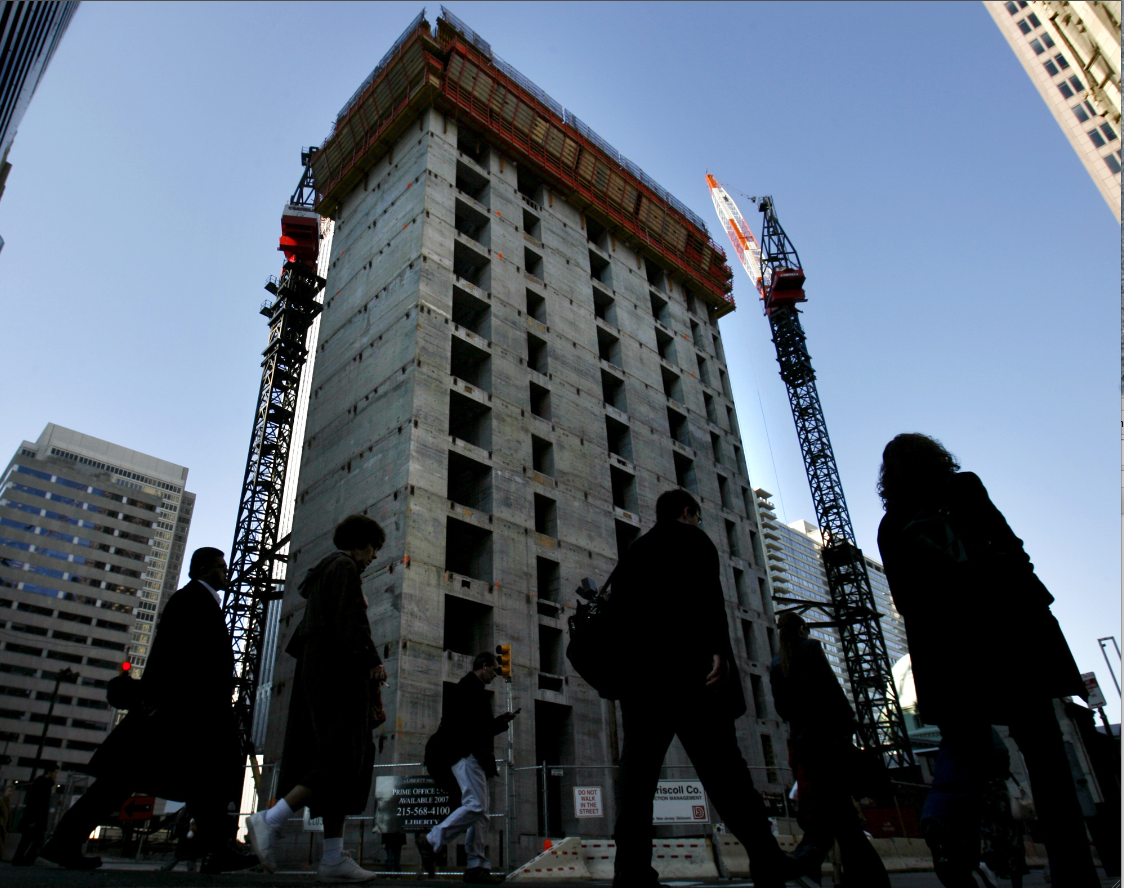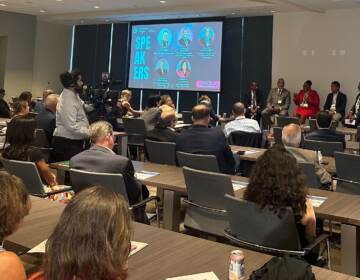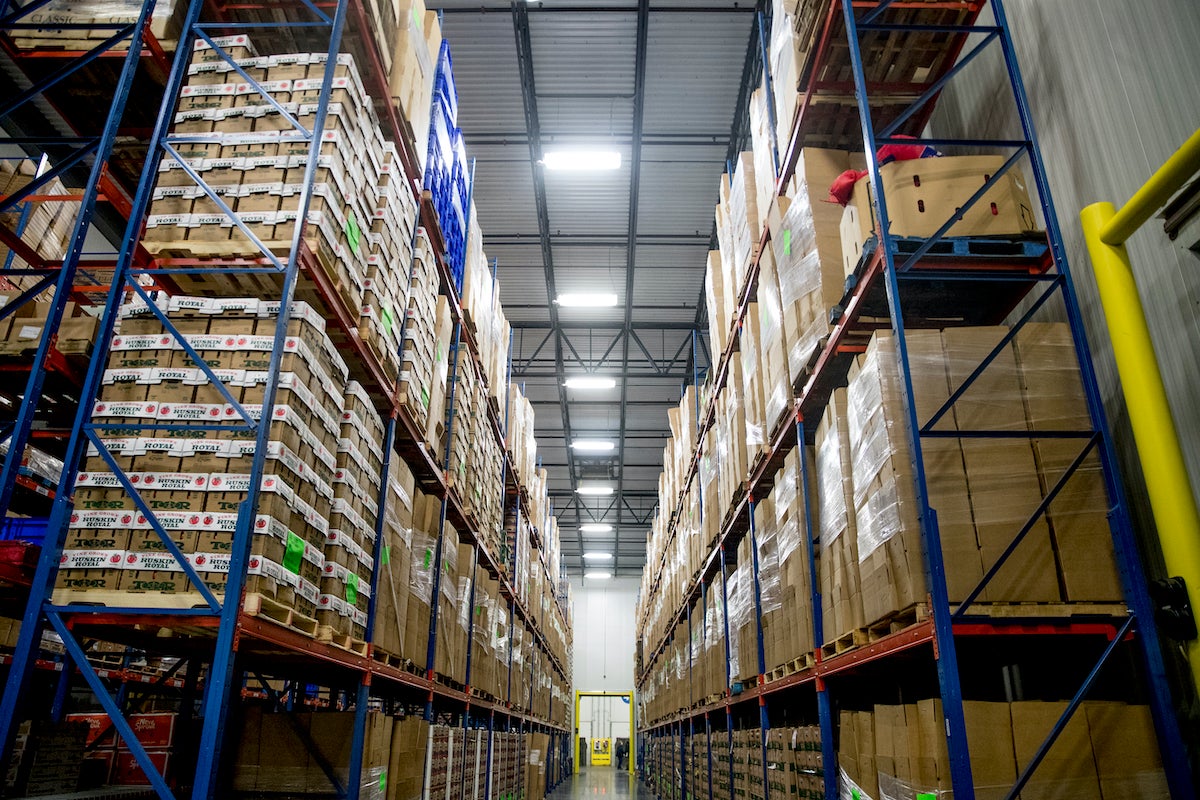A tweak to the city’s plumbing code on tap to lower housing costs, but will Philly politics stand in the way?

On Thursday, the city took a first step towards modernizing the city’s plumbing code in ways that development industry insiders say could lead to more affordable housing and lowered construction costs across Philadelphia.
Held in a crowded room on the 16th floor of the city’s Municipal Services Building, first meeting of a newly reconstituted Plumbing Advisory Board initiated a long-awaited process that Mayor Jim Kenney and his administration hope will bring the code up to contemporary standards, while also serving the interests of the public and various industry groups, including the politically powerful trade unions — a challenge that no previous mayor has been able to accomplish.
“The plumbing code hasn’t changed in decades, we are a modern city that needs a modern code, said Department of Licenses and Inspections spokeswoman Karen Guss. “But we also have a very specific history including in our buildings and the Philadelphia plumbers are the experts in how to take care of those buildings. So we need everyone’s best thinking to end up with the kind of code that will work for our city.”
Unlike most American cities, Philadelphia adheres to old standards that require copper and iron piping in any building over three stories high. While other municipalities moved over to less costly plastic PVC piping decades ago, Philadelphia has abided by the wishes of plumbing industry and remained true to a code enshrined before technological advances made PVC a preferred, more affordable choice for builders and a standard adopted by the International Code Council (ICC), an industry organization whose guidelines are enshrined across local and federal agencies. The decision to retain the old code has kept plumbers happy while frustrating builders and some housing advocates.
“A common saying in the industry is that it takes ten men to carry one length of cast iron pipe, but only one man to carry ten lengths of PVC pipe,” said Kevin Gillen, a senior research fellow with Drexel University’s Lindy Institute for Urban Innovation.
According to math published by the Building Industry Association in a 2017 report, cast-iron piping costs two and a half times more than PVC piping. That’s not including the additional labor costs needed to handle iron piping, which is substantially heavier than its plastic counterpart.
Going plastic can drive down costs on a residential project by nearly a fifth, the BIA said in its report. For instance, installing PVC instead of metal in a 240-unit high-rise residential building translates to a 16.7 percent cost reduction, the industry trade group noted.
“When there is a cost reduction in one area, it doesn’t go in the developers’ pocket,” said Jim Maransky, president of the BIA, at Thursday’s board meeting. “It gets shifted to another project. We are fifth or sixth in construction cost in the nation and 25th or 26th in rent. We need to narrow that gap and modernizing the plumbing code is one way to do that
Thursday’s meeting was the board’s only public meeting. The chamber became so packed that overflow rooms were installed to accommodate the crowds, and developers grumbled about being locked out of a meeting that by 8:45 was already crowded with plumbers and other code enthusiasts.
In the days leading up to the meeting, city hall buzzed with anticipation of possible acrimony between the trade unionists and the real estate developers. In the end, the debate unfolded in an orderly manner, despite the obvious tensions.
“I understand people in this room want to eliminate the Philadelphia code and adopt the international code—in my professional opinion, this is an unreasonable request,” said John Kane, the business agent for Plumbers Local 690. “The developers’ agenda is to make profit. My agenda is to help modernize the plumbing code to protect the consumer and to keep our city safe from inferior products.”
Developers bridle at the suggestion that they are purely motivated by greed.
BIA says it isn’t arguing for plastic piping as an appropriate material in every instance. There are plenty of cases, they say, where iron and copper piping is necessary. But they want decisions about when it can be used to be largely left up to building designers.
The Kenney administration has struck a diplomatic tone, striving to keep labor union allies well-represented in the debate, but setting a goal of changing the status quo. Still, from the beginning, the city’s real estate industry has been annoyed by the composition of the seven-person Plumbing Advisory Board, which includes four members who are affiliated with the building trades unions and three members associated with the BIA. (There are also three ex-offico representatives from relevant sectors of the city bureaucracy.)
When asked about that imbalance, Guss noted that the board is advisory. The final power rests with the Kenney administration. When asked how the administrsation would respond if the advisory board recommended a course that left the Philadelphia Plumbing Code largely intact, Guss stayed optimistic.
Maransky says he would like to see three plumbers, three members of the development industry, and one tie-breaker vote from the design field or, even better, a mechanical engineer.
And, in any case, the BIA says they trust the leadership behind the board, specifically Kenney’s Department of Licenses and Inspections commissioner David Perri.
“BIA really likes the new leadership of L&I and we think they really are in favor of updating the code,” says Maransky. “If the board voted and that became the law I’d have a much bigger problem with it.”
The board took testimony from a couple dozen interested parties at Thursday’ meeting. Representatives from the ICC and the Green Building United testified in favor of a more dramatic update, while master plumbers, contractors, and representatives of pipe manufacturers urged caution.
The Plumbing Advisory Board expects to present its findings to the administration in June. Before then there will be several more meetings over the intervening months. But they will be closed to the public.
Near the conclusion of Thursday’s meeting, board member Sara Poindexter —who is affiliated with the BIA—asked if the remaining meetings could be open to the public. Her point was not taken up.
Asked after the meeting, if the public could attend future meetings, Krzyzanowski said: “That’s to be determined. I’m not certain.”
WHYY is your source for fact-based, in-depth journalism and information. As a nonprofit organization, we rely on financial support from readers like you. Please give today.







